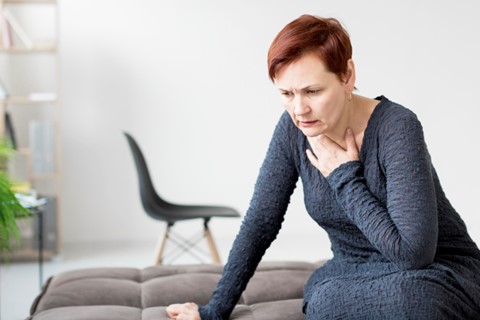Menopause is a natural biological process that marks the end of a woman’s reproductive years. It usually occurs between the ages of 45 and 55 and is characterized by a significant decrease in estrogen and progesterone hormone levels. This hormonal shift can cause a wide range of physical and emotional changes, which can vary greatly from woman to woman. In this blog post, we will discuss what to expect during the menopause transition and how to cope with its symptoms.
- Physical Changes
The most commonly known symptom of menopause is hot flashes, which can cause sudden feelings of warmth or heat that spread over the body. Hot flashes can last for a few seconds to several minutes and can occur several times a day. Other physical symptoms of menopause may include night sweats, vaginal dryness, irregular periods, weight gain, and fatigue. Some women may also experience changes in their skin, hair, and nails, such as dryness, thinning, and brittle nails.
- Emotional Changes
Menopause can also bring about emotional changes that can be difficult to cope with. Some women may experience mood swings, irritability, anxiety, depression, and difficulty sleeping. These emotional changes may be caused by the hormonal fluctuations that occur during menopause, as well as the stress and anxiety that can come with aging and life changes.
- Coping Strategies
Fortunately, there are several coping strategies that can help women manage the symptoms of menopause and improve their overall quality of life. Here are some tips to consider:
- Stay active: Regular exercise can help reduce the severity of hot flashes and improve mood and energy levels.
- Eat a healthy diet: A diet rich in whole grains, fruits, vegetables, and lean protein can help manage weight and improve overall health.
- Get enough sleep: Getting adequate sleep is essential for physical and emotional health. Try to establish a regular sleep routine and avoid caffeine and alcohol before bed.
- Talk to your doctor: Your doctor may recommend hormone replacement therapy or other medications to help manage your symptoms.
- Practice stress reduction techniques: Activities such as yoga, meditation, or deep breathing exercises can help reduce stress and promote relaxation.
- Join a support group: Connecting with other women going through menopause can provide emotional support and help you feel less alone.
In conclusion, menopause is a natural biological process that all women go through, and while it can be challenging, it doesn’t have to be debilitating. By staying active, eating a healthy diet, getting enough sleep, talking to your doctor, practicing stress reduction techniques, and joining a support group, women can manage the symptoms of menopause and improve their overall quality of life. Remember, menopause is just another chapter in your life, and with the right mindset and coping strategies, you can embrace it and continue to thrive.

